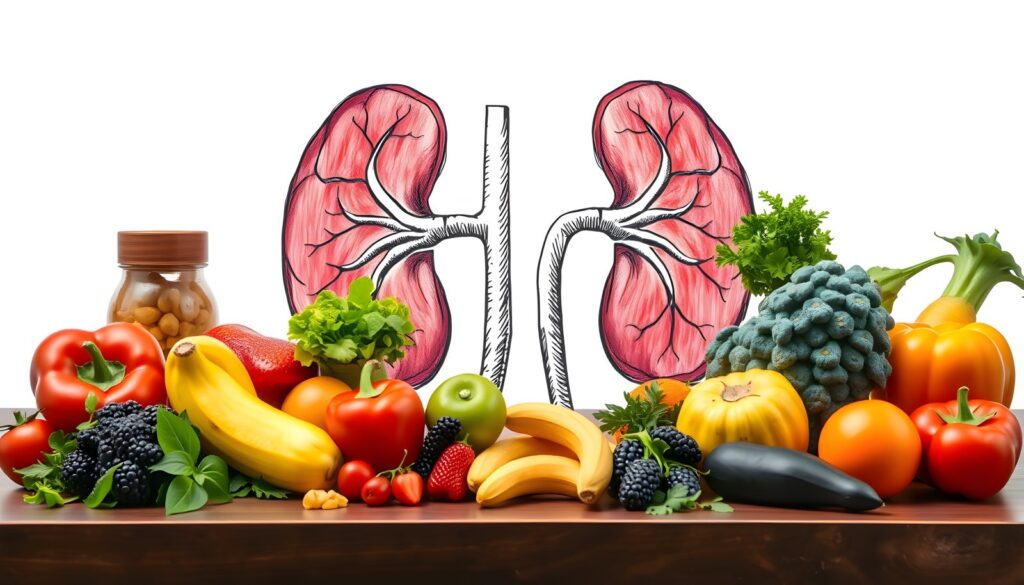Diet plays a pivotal role in managing the risk of kidney stones. By understanding the impact of food choices, you can make dietary adaptations that are readily accessible, especially in India. Incorporating certain foods can help reduce the likelihood of developing these painful stones. Knowing what to eat and what to avoid can protect your kidneys and overall health. Many of these dietary options are easily found across the country, ensuring that anyone can make healthier choices to curtail the formation of kidney stones.
Introduction to Kidney Stones and Dietary Importance
Kidney stones are hard mineral deposits that form in your kidneys, causing severe pain and discomfort. They can obstruct urine flow and lead to infections. Making dietary changes is crucial to lowering the risk of their formation. Certain foods can either contribute to or help prevent these stones. By understanding which foods to include in your diet, you can significantly reduce your likelihood of encountering kidney stones.
Understanding the Types of Kidney Stones
There are several kinds of kidney stones, including: – Calcium oxalate stones, the most common type. – Uric acid stones, which form when urine is too acidic. – Calcium phosphate stones, rarer but influenced by dietary choices.
Each type requires specific adjustments in your diet. Recognizing the type of stones you are prone to can help tailor your eating habits accordingly.
Keeping Hydrated: A Vital Step
Staying well-hydrated is a crucial step in preventing kidney stones. Aim to drink 2–3 liters of fluids each day. This helps flush out substances that can form stones. Traditional Indian drinks like nimbu pani (lemon water) and jaljeera (spiced water) offer refreshing hydration options. While there are myths surrounding different hydration practices, simple and regular water consumption remains one of the best ways to keep kidney stone risks at bay. Ensuring an ample fluid intake dilutes your urine, which helps prevent the formation of stones.
Calcium: Friend, Not Foe
Many people think calcium can cause kidney stones, but this is not entirely true. Consuming the right amount of calcium is actually beneficial. Foods such as paneer (Indian cottage cheese) and leafy greens are excellent calcium sources widely available in India. Scientifically, calcium binds with oxalate during digestion, preventing it from reaching the kidneys to form stones. Thus, maintaining adequate calcium intake from food is essential in preventing stones.
Navigating the Oxalate Dilemma
Oxalates, found in many foods, can contribute to kidney stones. Foods such as spinach and beetroot are high in oxalates. Balancing these with calcium-rich foods can prevent stone formation. The combination helps oxalate bind with calcium, reducing absorption and subsequent stone risk. Managing your oxalate intake is crucial, especially since many Indian delicacies include these items.
Taming Salt Intake for Kidney Health
High sodium intake is linked to an increased risk of kidney stones. To reduce sodium in your diet, try using herbs and spices for flavor instead of salt. Use less salt while cooking, and avoid processed foods high in salts. This simple yet effective step can significantly lower your chances of developing stones.
Balanced Protein Consumption
Animal proteins, like meat and eggs, can increase stone risks. These can be replaced with plant-based sources, such as lentils and beans, popular in Indian cuisine. Creating meals around these plant proteins can help maintain a healthy balance while offering sufficient nutrition. Limiting animal protein not only helps prevent kidney stones but supports overall health improvements.
Managing Purine-Rich Foods for Uric Acid Stones
Purines, found in red meats and shellfish, turn into uric acid in the body, potentially leading to uric acid stones. Opt for a plant-centered diet, which lowers intake of purines. Increasing fruits and vegetables while limiting red meats can positively affect stone risk and overall wellness.
Embracing Fruits, Vegetables, and Whole Grains
Diets rich in fruits, vegetables, and whole grains can help prevent kidney stones. Foods like bananas, oranges, and whole grains are commonly available in India and provide vital nutrients and fibers. Consuming a variety of seasonal and local produce supports kidney health and reduces stone formation risk.
Understanding Sugar and Sweeteners Impact
High sugar intake can also raise the risk of developing kidney stones. Limiting sugary drinks and opting for healthier alternatives like coconut water is beneficial. Reducing sugar consumption and choosing natural sweetness sources can reduce stone risks and lead to better overall dietary habits.
Sample Day Meal Plan for Stone Prevention
Creating a meal plan incorporating these dietary tips is simple. Here’s a sample plan: – Breakfast: Poha with vegetables and a glass of nimbu pani – Lunch: Brown rice lentil curry and a side of leafy greens – Snack: Mixed fruit salad with low-fat yogurt – Dinner: Whole wheat chapati with paneer curry and steamed vegetables This plan uses easy-to-find Indian dishes and seasonal produce, making it realistic and attainable for most.
Conclusion and Actionable Steps
You have the power to reduce kidney stones risk through diet changes. Focus on staying hydrated, eating balanced meals, and consulting healthcare providers for personalized advice. Proactive steps can dramatically influence kidney stone prevention.

